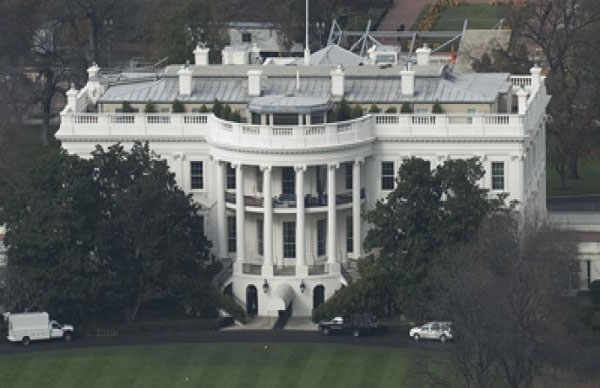
WHITE HOUSE GIVES HOMELAND SECURITY CONTROL OF ALL COMMUNICATION SYSTEMS
Truther
The White House has finally responded to criticism over US President Barack Obama’s hushed signing last week of an Executive Order that allows the government to command privately-owned communication systems and acknowledges its implications.
When President Obama inked his name to the Assignment of National Security and Emergency Preparedness Communications Functions Executive Order on July 6, he authorized the US Department of Homeland Security to take control of the country’s wired and wireless communications — including the Internet — in instances of emergency. The signing was accompanied with little to no acknowledgment outside of the White House, but initial reports on the order quickly caused the public to speak out over what some equated to creating an Oval Office kill switch for the Web. Now the Obama administration is addressing those complaints by calling the Executive Order a necessary implement for America’s national security.
“The [order] recognizes the creation of DHS and provides the Secretary the flexibility to organize the communications systems and functions that reside within the department as [Homeland Security Secretary Janet A. Napolitano] believes will be most effective,” White House spokeswoman Caitlin Hayden tells the Washington Post.
Hayden insists that “The [order] does not transfer authorities between or among departments,” but the order does indeed allow the DHS to establish and implement control over even the privately owned communication systems in the country, including Internet Service Providers such as Time Warner, Verizon and Comcast, if the administration agrees that it is warranted for security’s sake.
Immediately after last week’s signing, the Electronic Privacy Information Center (EPIC) said the order allowed the DHS “the authority to seize private facilities when necessary, effectively shutting down or limiting civilian communications.”
Following up with the Post this week, EPIC attorney Amie Stephanovich stands by that initial explanation, agreeing that the DHS can now “seize control of telecommunications facilities, including telephone, cellular and wireless networks, in order to prioritize government communications over private ones in an emergency.”
“The previous orders did not give DHS those authorities over private and commercial networks,” adds. Stepanovich. “That’s a new authority.”
According to the order, the DHS can take charge of “commercial, government, and privately owned communications resources” to satisfy what is described as “priority communication requirements.” With little insight from outside the White House, though, what constitutes such an emergency may very well be decided on by Washington, where the country’s elected leaders are still split on all things involving the Internet.
Even still, Stepanovich says that approaching Capitol Hill for comment before rushing through an Executive Order could have caused things to come out differently, but would have also arguably brought forth a firestorm such as the one that accompanied an attempt to pass the Stop Online Piracy Act. When Congress tried to pass SOPA this year — which included provisions that were argued to grossly regulate the Internet — protests nationwide played a massive part in killing the legislation.
“This should have been done by Congress, so there could have been proper debate about it,” Stepanovich tells the Post of last week’s signing. “This is not authority that should be granted by executive order.”
White House spokesperson Hayden adds to the Post, “Mobile phones, the Internet, and social media are all now integral to the communications landscape,” concreting still the allegations that this order could be used as a kill switch to any of the millions upon millions of handheld and desktop devices across the country.
Source: RT

